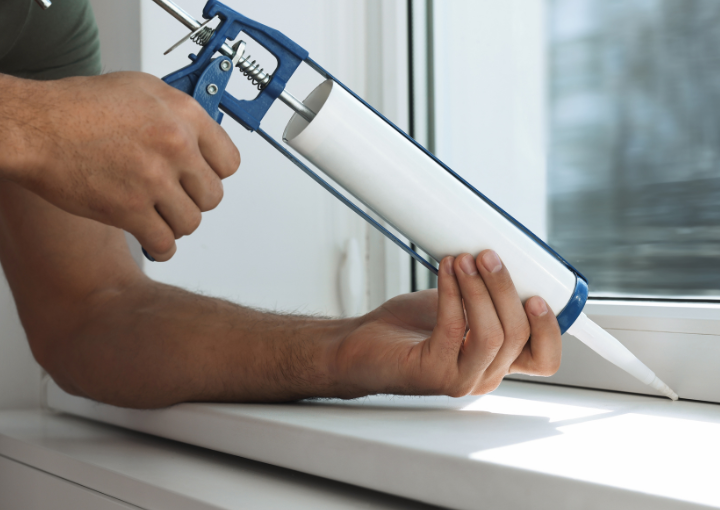In the world of home improvement and DIY projects, caulk stands as a versatile and indispensable tool. Used for sealing gaps, cracks, and joints, caulk plays a crucial role in maintaining the integrity of structures, preventing leaks, and enhancing the overall aesthetic of surfaces. Let’s take a closer look at the different types of caulk available in the market and their diverse range of applications.
- Silicone Caulk:
- Properties: Known for its durability and flexibility, silicone caulk is resistant to water and extreme temperatures.
- Uses: Ideal for areas prone to water exposure, such as bathrooms and kitchens. It’s also suitable for exterior use, providing excellent weather resistance.
- Latex Caulk:
- Properties: Water-based and easy to clean up, latex caulk is flexible and paintable once it dries.
- Uses: Commonly used for interior projects, such as sealing gaps around windows and doors. It’s a popular choice for areas where easy cleanup and paintability are essential.
- Polyurethane Caulk:
- Properties: Known for its exceptional adhesion and durability, polyurethane caulk is resistant to abrasions and chemicals.
- Uses: Ideal for high-traffic areas, such as flooring joints. It’s also suitable for outdoor projects due to its resistance to weather and UV exposure.
- Butyl Rubber Caulk:
- Properties: Butyl rubber caulk offers excellent water resistance and remains flexible over time.
- Uses: Widely used in roofing applications and for sealing joints in gutters. Its flexibility makes it a good choice for areas prone to movement.
- Acrylic Caulk:
- Properties: Easy to apply and clean up, acrylic caulk is paintable and offers moderate flexibility.
- Uses: Suitable for general-purpose interior applications. It’s commonly used for sealing gaps and cracks in molding, trim, and baseboards.
- Fire-Resistant Caulk:
- Properties: Specifically formulated to resist fire and heat, fire-resistant caulk helps prevent the spread of flames.
- Uses: Essential for sealing joints in areas where fire protection is critical, such as around electrical boxes and pipes.
- Mold-Resistant Caulk:
- Properties: Mold-resistant caulk contains additives to inhibit mold and mildew growth.
- Uses: Ideal for bathrooms, kitchens, and other areas prone to high humidity. It helps maintain a clean and healthy environment by preventing the formation of mold and mildew.
- Concrete Caulk:
- Properties: Designed for use on concrete surfaces, this caulk is formulated to adhere well to porous materials.
- Uses: Perfect for repairing cracks in concrete driveways, sidewalks, and foundations. It provides a durable and weather-resistant seal.
In conclusion, selecting the right type of caulk is crucial for the success of any sealing project. Each type has its unique properties and applications, so it’s essential to consider the specific needs of the project before making a choice. Whether you’re tackling an interior renovation or an outdoor repair, the diverse range of caulk options ensures there’s a suitable solution for every application, helping you achieve professional and long-lasting results.
